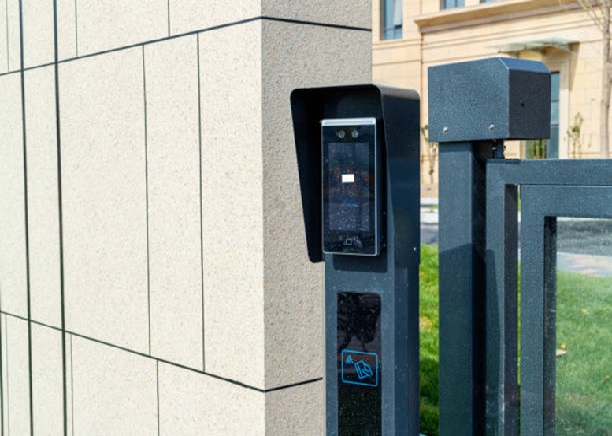Warehouses are bustling hubs of activity, often covering vast spaces and housing a variety of operations simultaneously. With teams spread across large areas, efficient communication becomes critical for safety, productivity, and operational coordination. This is where a warehouse intercom system proves invaluable. A well-designed intercom system enables seamless communication between staff members, allowing for instant updates, instructions, and alerts, all while reducing the reliance on mobile phones or physical movements across the warehouse floor.
In this article, we’ll explore the role of warehouse intercom systems, their features, and how they contribute to the overall functionality of the warehouse environment.
Why a Warehouse Intercom System is Necessary
In a large facility, communication challenges are frequent. The sheer size and layout of the space can make it difficult for staff to quickly relay information. Additionally, with the constant movement of goods and machinery, timely communication can be a matter of safety and operational efficiency.
Key Challenges in Warehouse Communication:
- Size of the facility: Warehouse layouts are typically expansive, with separate storage, packing, shipping, and office areas.
- Noise: The hum of machinery, forklifts, and general activity can make verbal communication difficult.
- Time-sensitive coordination: Instructions often need to be relayed quickly to maintain workflow efficiency, and delays can lead to bottlenecks.
- Safety concerns: Emergency situations, like machinery breakdowns or safety hazards, require immediate alerts across the entire team.
A warehouse intercom system addresses these challenges by offering instant, clear communication across different areas. It eliminates the need for employees to physically move to relay messages, speeding up communication and reducing the risk of accidents or delays.
Features of a Modern Warehouse Intercom System
Modern intercom systems differ considerably from the traditional ones which were just like two way radios only. The right system will have several attributes to make work within a warehouse easier and easier with time.
- Wide Area Coverage: Basically, the warehouse intercom systems are meant to have large coverage spaces. Regardless of whether the facility is multi-storied, vast storage areas, or offsite loading bays, the system makes all of it networked.
- Hands-Free Operation: Thus, the majority of systems come with certain facilities enticing that workers are able to speak without necessarily having to stop working. This is especially important when operating a forklift, or dealing with other heavy equipment.
- Paging Capabilities: Paging features: Intercom intention can be fixed with paging feature, and several areas of an organization can be informed simultaneously. This is useful for telling students it’s time for a break or the end of a shift… or a fire drill.
- Integration with Security Systems: Some intercom systems that are designed for warehouse have some touch with the security Systems. For instance, they can interface with access control systems which enables the managers to speak to the staff or delivery people at the various points of entry.
- Durable Design: There are different conditions usually associated with warehouses, such as dust, moisture and frequent transport of goods. Warehouse intercom systems are created with the ability to endure such a working environment, thus its long lasting durability.
- Wireless Connectivity: Current warehouse intercom system implementation tends to adopt wireless solution, which helps eliminate the overhead of cabling. Wireless systems are also easier to RECONFIGURE whenever the layout of a warehouse has been shifted.
- Noise Cancellation: Some of the popular features that you will find with these intercoms include noise reducing microphones and speakers due to the constant sounds of machinery. These it combines well with Proactive Canceling to prevent occurrence of a situation where the message delivered was not understood due to some noise. Click here for more information
Benefits of a Warehouse Intercom System
Implementing a warehouse intercom system offers a range of benefits, all of which contribute to improved operations, safety, and productivity.
Increased Efficiency
With a reliable intercom system, messages are communicated quickly and clearly, eliminating time wasted in physically moving from one area to another. Instructions regarding stock movement, shipments, or troubleshooting can be broadcast instantly, improving workflow.
Enhanced Safety
In a warehouse environment, safety is paramount. Intercom systems allow for immediate communication during emergencies, such as accidents, spills, or machinery malfunctions. Staff can be alerted in real-time, minimizing response times and preventing further harm. This system also allows for quick coordination during fire drills, evacuations, or first aid situations.
Improved Coordination
Warehouse operations are often coordinated across several departments: receiving, shipping, packing, and management. An intercom system ensures that all departments are in sync and can work together seamlessly. For instance, a sudden influx of orders in the shipping department can be immediately communicated to the packing team, enabling them to adjust their workflow and meet demand.
Cost-Effective Communication
While mobile phones or radios can also facilitate communication, they can be unreliable, expensive, or impractical in certain situations. Intercom systems, once installed, offer a cost-effective, reliable alternative with minimal ongoing maintenance. Additionally, they eliminate the need for workers to carry personal communication devices, which may be easily damaged in an industrial setting.
Clear Communication in Noisy Environments
The noise generated in warehouses can make verbal communication difficult, but intercom systems designed for these environments can cut through the ambient noise. This ensures that instructions are heard clearly, reducing the chances of errors or misunderstandings, which could lead to operational delays or safety hazards.

Choosing the Right Intercom System for Your Warehouse
When selecting a warehouse intercom system, it’s essential to consider the specific needs of your facility. Factors such as the size of the warehouse, the number of employees, and the level of activity will all impact your choice.
- Scale of Operations: A larger warehouse will need a system with a wider coverage area and more complex paging capabilities.
- Durability Requirements: If your warehouse environment includes dust, humidity, or extreme temperatures, choose a system with durable, industrial-grade components.
- Integration Needs: If security is a concern, look for a system that integrates with access control or CCTV systems.
- Wireless vs. Wired: Depending on your layout and the flexibility required, you may opt for a wireless system, which can be expanded or reconfigured more easily. Read this to learn more.
Conclusion
In the fast-paced world of warehouse operations, a reliable and efficient communication system is crucial. A warehouse intercom system not only improves communication across large and noisy spaces but also enhances overall safety and productivity. By selecting a system with the right features, you can streamline operations, reduce the likelihood of errors, and ensure that your team stays connected at all times. Whether it’s for coordinating workflow, managing emergencies, or maintaining safety protocols, an intercom system is an essential tool for any modern warehouse.




